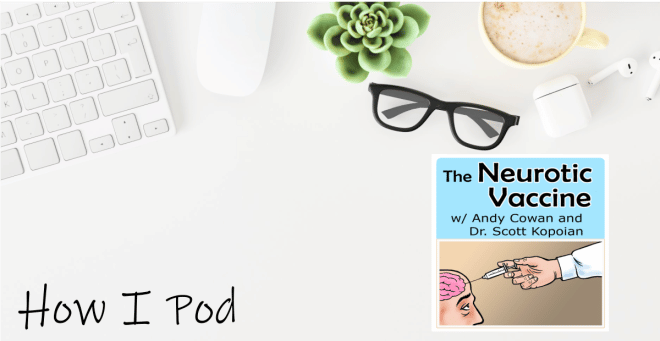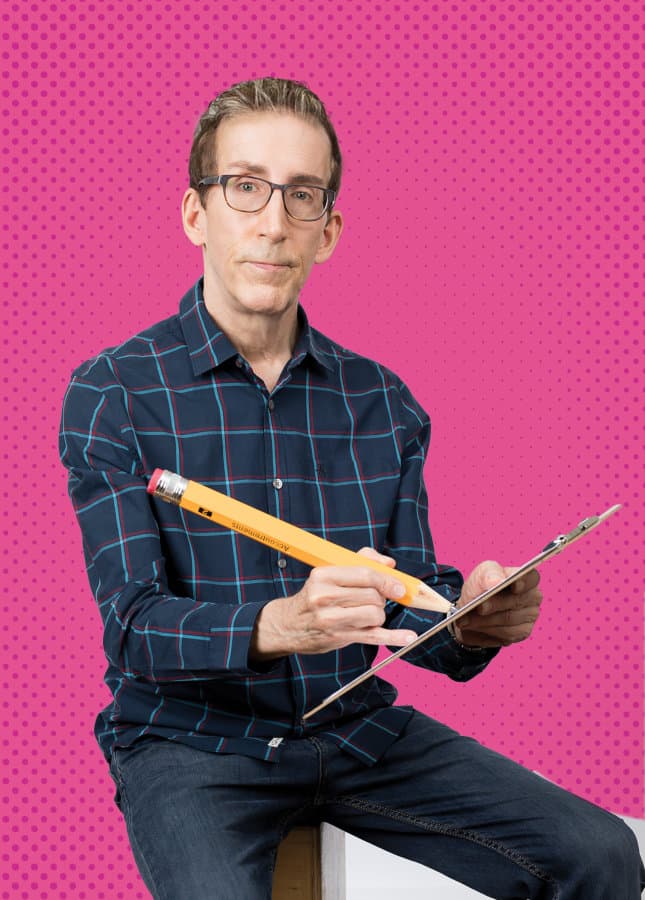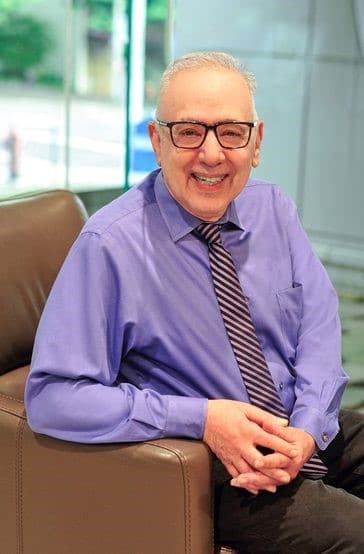How I Pod: Andy Cowan & The Neurotic Vaccine’s Wild Success

Last updated on February 28th, 2023
I had never really heard of Andy Cowan before a friend of mine who was working on Curb Your Enthusiasm vouched and said he was legit. I had stumbled across his podcast, “The Neurotic Vaccine,” and found the early episodes delightful.
Being something of a neurotic myself, I thought the format of the show was interesting, vulnerable, and ultimately engaging. As a staunch proponent of the benefits of therapy, the idea of hearing someone’s genuine therapy session play out was intoxicating.
So, for the inaugural edition of “How I Pod,” I wanted to reach out to Andy to see if he was game to tell us how the sausage gets made. Being a new show, I thought it would benefit our audience to see how a new show, with a rather unique premise, gets made.
We’ve gone through how cheap it is to get a podcast started, but that’s just the equipment. You have to have the premise, and execution. Those are a little harder to nail down right off the bat. So let’s dive into it a little bit.
But first a bit of background on Andy Cowan, the show’s focal point.
Andy Cowan – Award Winning Writer
I’m a bit embarrassed to say I didn’t know who Andy was, despite him writing for some of my favorite shows growing up.

Primarily, he’s written for Cheers, Seinfeld, and 3rd Rock from the Sun. Those are three stellar sitcoms. And, yeah, the pun for the last one was completely intended. Sue me.
But as a writer, he’s written pilots that have gone nowhere, or worse, barely got off the ground. Like an early rocket scientist, building something to watch it explode three feet off the ground is going to sting a bit. Going to build some of that neurosis that makes the podcast so good.
Which isn’t to say he’s not without additional accolades that any aspiring writer would most likely kill for.
From his IMDB:
He’s a Who’s Who in America 2017 Lifetime Achievement Award-Winner, with multiple episode, staff and TV pilot writing credits reflecting over a dozen comedies and talk shows, the only writer collectively associated with Cheers, Seinfeld, and 3rd Rock from the Sun. He won a Best Short Form Programming Special CableAce Award for his 60 Minutes sendup for Showtime, and began his Hollywood career as a talent coordinator, writer and performer in the ’80s on The Merv Griffin Show. His comedy memoir, Banging My Head Against the Wall: A Comedy Writer’s Guide to Seeing Stars, foreword by Jay Leno, was acquired by The National Comedy Center in 2019, one of the world’s 100 greatest places as cited by Time Magazine in 2019.
Andy Cowan IMDB
Formatting for The Neurotic Vaccine
Thus far, and new shows are always open to change in format (as we’ve discussed with Scott Galloway’s show for instance), the show begins with a therapy session with Andy Cowan and Dr. Scott Kopoian. Kopoian is more or less a co-host and is billed as such in the show’s title.
Andy Cowan The Neurotic
But not really a co-host, an actual therapist, who works out real life issues Andy Cowan is experiencing at any given time. It’s a fascinating and vulnerable look at someone who I’d consider a resounding success.
It just goes to show that everyone can benefit from a good bit of therapy.
The second and third acts have featured comedy departments followed by interviews with everyone from Jay Leno and Cathy comic creator Cathy Guisewite, to the final joint appearance by Jerry Mathers & Tony Dow (coupled with Andy’s vignettes depicting his own versions of Beaver, Wally, Ward, and June), Shark Tank‘s Mr. Wonderful, CNN’s Michael Smerconish, and actress Marilu Henner.
Andy Cowan The Interviewer
The interviews are fantastic. They are wide ranging in subject matter and he has a knack for getting the guest to loosen up a bit. He may not love the comparison to Joe Rogan (we haven’t discussed it), but there’s some similarity, not in technique, but in outcome.
Like, I fully expect Andy could get Elon to smoke a blunt on camera. Not that he would, or maybe Elon just likes the devil’s lettuce, but I could see it happening one way or the other.
The interviews are entertaining and cathartic. As much so as the therapy session that kicks off the episode. Listen to this interview with Jay Leno about being glad bad things happen.
And seeing as Jay’s had a string of car related mishaps lately, it sort of resonates. Despite what happened with Conan. That one still hurts.
It’s damned near Buddhist.
So, let’s talk about how Andy Cowan gets this podcast out to a ravenous listener base.
How I Pod: The Interview
I’m nowhere near the interviewer Andy is, but he was kind enough to help launch this new category on the site over email.
Why did you choose such an intimate, vulnerable, format? Obviously it’s engaging for the listener, but that type of vulnerability feels authentic as a frequent user of therapy.
I’ve long been drawn to psychology and human behavior as jumping off points for comedy. My undergraduate degree was in psychology. And I was an early fan of The Bob Newhart Show which tapped into those two worlds, as did Seinfeld in its own way, a show I wrote for.
In my early standup and original pilots, my goal had always been to share my personal take on life’s everyday challenges that people would hopefully connect with in their own ways. Therapy seemed like an honest way into that.
How did the format come about? Was it collaborative, or your exclusive idea? I find it unique in the podcasting space because there are segments that are distinct. My favorite is the therapy, thus far, but that could easily change. The oblique comedy sketch is fantastic.
In 2000, I created a live two-hour weekly video show for the web called Up & Down Guys, partly written bullet points, partly extemporaneous.
I was the “down guy” who saw the glass half-empty. My co-host was a friend I’d met several years before, someone with whom I’d sensed an offbeat natural chemistry, psychologist Scott Kopoian, the “up guy” who saw the glass half-full.

And the opposites angle seemed like another natural – one of the themes in my 2018 comedy memoir, Banging My Head Against the Wall: A Comedy Writer’s Guide to Seeing Stars, that explores how fruitful the opposite can be in comedy, including George Costanza’s decision to follow the opposite of his instincts to gain success, a notion from my own life that turned into my Seinfeld script, “The Opposite.”
As in The Neurotic Vaccine, Up & Down Guys also opened with therapy and dovetailed into later post-therapy distinct comedy departments, some of which have transitioned to The Neurotic Vaccine. Others I waited to do until The Neurotic Vaccine, like “Neurotica Theater.”
I thought it was offbeat to throw my therapist, a civilian, into occasional performing vehicles with me post-therapy. In another department on Up & Down as well as the podcast, we’ve featured “big gets” who don’t want to put their voices on the air, so you only hear my and Scott’s ends of the conversations. (A subtle nod to Bob Newhart’s one-sided phone conversations.) I used to go full tilt to really sell that I was talking to Bob Hope or Senator John McCain.
We’d also have a few actual guests in the old show like the late comedian Robert Schimmel, who talked about the up and down moment when he was called in to read for the part of George Costanza on Seinfeld but unknowingly trashed the pilot script in front of Larry David and lost his chance to audition!
We wound up doing fifty hours of Up & Down and I never worked harder to try to sell a creative project. Interest from a big radio station in L.A. led to an L.A. Times piece but the radio gig didn’t wind up panning out.
Lorne Michaels’ company even found Up & Down intriguing and floated the notion of a TV version. I later did Up & Down for a short time with another up guy/therapist on L.A.’s public radio station, KPFK.
Years later when my thoughts turned to a podcast, The Neurotic Vaccine seemed like a more interesting title not to mention evocative of the times. And Scott was again “up” for it, having moved by then to Portland.
Not being a strictly down guy, I could also now tap into other aspects of a slightly offbeat mindset under the “neurotic” umbrella. Plus, I’d no longer have to explain that we’d christened Up & Down Guys years before SNL’s Debbie Downer!
How do you both produce the podcast. Are you in the same room, is it a zoom call (driving in the valley is a pain), so remote is great.
I produce The Neurotic Vaccine in my home office off my Windows desktop.
I constantly jot down the therapy notions to explore and comedy departments. I reach out to interesting guests through their agents, managers or publicists, and suffer through the usual non-responses or no’s. But with persistence, we’ve been able to nab some terrific ones, including Jay Leno on the first episode and Shark Tank’s Mr. Wonderful, Kevin O’Leary, whose director of publicity wrote back, “We get so many podcast requests.
But clearly yours is not a typical podcast : )
We’d be delighted to be a part of this.” And this was before The Neurotic Vaccine launched and started climbing the comedy interview podcast charts in America, Canada, and of all places, Denmark and Greece!
That show 5 with O’Leary is one of my favorite episodes where I get to recreate Shark Tank and pitch him all kinds of offbeat business propositions, complete with music and the sound effects of my rejected ideas getting “shot behind the barn.”
When it comes to fashioning decent interviews, I still often draw on what I learned pre-interviewing celebrity biggies like Orson Welles during my first Hollywood job in the ‘80s as a talent coordinator for The Merv Griffin Show.
The guest interviews as well as those with Scott are conducted over a video Zoom session. The pandemic was an ideal time for stockpiling the initial episodes and doing everything at home, but as I’ve explained in therapy to Dr. K, being kind of a homebody shut-in is my sweet spot in “normal” times!
What is your editing process like? Do you do it personally, or have someone else edit?
I edit everything myself on Hindenburg Journalist Pro, with an occasional assist on Audacity.
Can you give me an overview of the gear you’re both using? I assume the interviews are remote and over a piece of software?
I combine Scott’s and the guests’ separate Zoom audio files with my more pristine Hindenburg audio file and go from there, trimming, augmenting, adding music, stingers, special effects. I work off an evo4 audio interface with a cardioid mike.
The therapy piece, is it done in one take, or is that somewhat scripted where it would need several takes. Because the back and forth is akin to an Olympic badminton event. I’m in awe.
Benztown+McVay Media Podcast Networks’ on-hold status for the podcast during much of the early stages of the pandemic gave me the luxury of time I wound up spending shaping, reshaping and nurturing our first season of shows.
Scott reads his lead-in, then leaves it open for me to dive into whatever general theme I’ll be personalizing on that episode and responds when he sees fit and/or when I suggest he add a comment.
I discovered how to grab the best of what’s extemporaneous, the happy accidents I always hope to capitalize on, along with what I read from my notes and bullet points, and later clean up, trim – and also add – elements and pickups that aren’t extemporaneous, be they for the therapy or post-therapy departments or guest spots, towards the goal of making the end result organically flow in a way that I hope sets it apart from other podcasts.
There are so many moving parts!
Timing with comedy as well as music (another interest of mine) is crucial: Waiting a beat here, trimming a beat there; it starts to feel like laying out a tune. I could use a neurotic vaccine for my anal-retentiveness.
For season 2, I’ll need to find a middle ground and ease away from some of the rigors. I’m already anticipating that I’ll have Dr. K advise me – not everything has to be perfect! But after literally years and years in the making, this project has tapped into every creative muscle I have.
That feels good and empowering. But I’m also a little sore!
Go Listen to The Neurotic Vaccine
Andy Cowan is a great writer, and stand up podcaster. I personally thank him for getting this kickstarted which I’ve been meaning to do for quite some time. I hope seeing how other podcasters are creating their shows will inspire you to start your own.
Afterall, at this point, everyone should have a podcast. You just need to dial in the direction and focus.













Comments
Comments are closed.